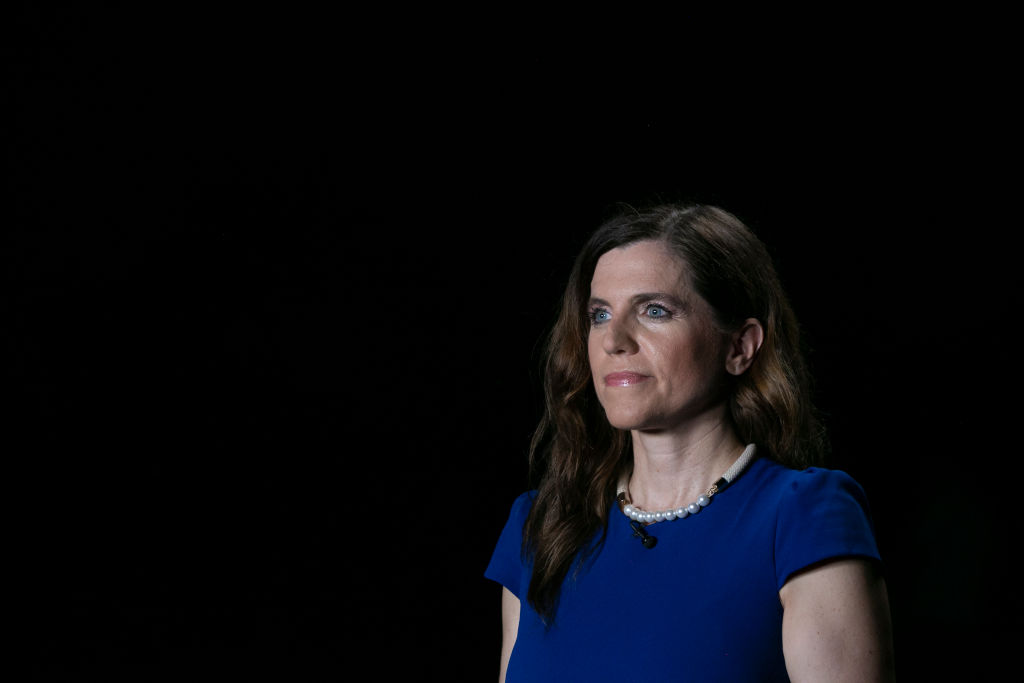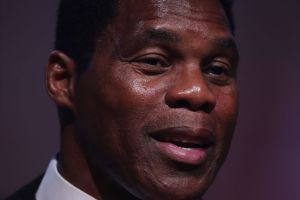Biden’s geopolitical reality check
Joe Biden’s plan to visit Saudi Arabia in July, announced this week, marks one of the most clear-cut foreign policy U-turns of his presidency. On the campaign trail, Biden boasted about his plans to “make a pariah” out of the kingdom. In his first few months in office, the president outlined a foreign policy that drew clear lines between the world’s democracies and autocracies — with Saudi Arabia on the wrong side of that divide, of course.
But the interconnected realities of global and domestic politics, as well as soaring prices, have forced Biden to rethink such a clear-cut approach and seek some level of cooperation with the Gulf petrostate. The president has been criticized for a move that many in his own party are uneasy about. Representative Adam Schiff recently summed-up a popular sentiment among Democrats when he said he would not go to Saudi Arabia and would not shake hands with Mohammed bin Salman given the murder of Jamal Khashoggi. Human rights groups have accused the president of “betrayal.”
The queasiness about doing business with the Saudis is understandable. And yet I can’t help but think that it was the original denunciation, not the recent U-turn, that was the bigger mistake. The geopolitical threats that America faces are harder to ignore today than they were when Biden took office. But, as some have pointed out all along, the president’s brand of democracy-versus-autocracy brand of liberal internationalism was always a little naive.
Biden’s Saudi U-turn is a welcome, if overdue acknowledgment that there are trade-offs in foreign policy. For months now, the administration has insisted that it can give Ukraine all the support it needs to triumph over Vladimir Putin, lead the world’s democracies to victory in a battle of values against its autocracies and remain undistracted in its pivot to Asia, underwriting Taiwan’s security and fending off China’s bid for supremacy in the Pacific. This is a self-evidently overambitious set of goals for an administration that plans to cut defense spending in real terms.
There are signs that Biden is facing up to this reality on other fronts too. Last week, defense secretary Lloyd Austin met his Chinese counterpart in Singapore and dialed-down tensions over Taiwan.
To some, these moves will look like weakness. The urge to take clear-cut and unambiguous stands against both Russia and China while shunning the Saudi regime is understandable. But to try to do it all at once is to underestimate the scale of the challenge and to overstate the extent of American power. The alternative is to press ahead with combative rhetoric, whether in relation to Ukraine or Taiwan, without having the means or domestic political will to back it up. That is a dangerous and destabilizing option.
Biden is a long way from any sign that he has a coherent grand strategy, and he may first and foremost be calibrating his foreign policy to more closely match his domestic political priorities, namely trying to find a way to tame inflation. But if that means the White House recognizes that it may have overpromised overseas, that is no bad thing.
*** Sign up to receive the DC Diary in your inbox on weekdays ***
Lessons from South Carolina and south Texas
Yesterday’s primaries saw a Republican who voted to impeach Trump in 2021 defeated for the first time. South Carolina Congressman Tom Rice was served a twenty-five-point shellacking by the Trump-endorsed Russell Fry in his Myrtle Beach district. A hundred miles along the coast, however, Trump’s anointed insurgent failed to topple Nancy Mace in a much closer race. Mace will be breathing a sigh of relief, as will former governor and possible 2024 contender Nikki Haley, who threw herself behind Mace’s re-election bid. The difference between Mace and Rice’s fates is instructive when it comes to the kind of anti-Trump stances that candidates can get away with in the GOP today. Criticism of the former president? Tolerated. Hostile opposition, including support for impeachment? Not tolerated.
In Nevada, Adam Laxalt, who had the backing of both the Trump and McConnell factions of the GOP, came out on top in the Nevada senate primary after newcomer Sam Brown won the surprise endorsement of the state GOP. The result sets up a November contest with Democratic incumbent Catherine Cortez Masto that will be one of the most closely watched races this cycle and go a long way to determining control of the Senate.
But Republicans of all stripes will perhaps be most interested in the news out of the Rio Grande Valley, where Republican Mayra Flores defeated Democrat Dan Sanchez in a 90-percent Hispanic district that has been blue for a century. The signs of a fundamental shift in the voting habits of Latino voters get clearer by the day, and spell nationwide trouble for Democrats. Among the voters who made Flores the first-ever Mexican-born woman to enter Congress? The world’s richest man. South Texas resident Elon Musk said he voted Republican for the first time yesterday and, in a reply to a question on Twitter, said he was leaning towards backing Ron DeSantis in 2024.
The story behind the Jan 6 delay
Why was today’s House January 6 Committee hearing postponed until next week? “Technical difficulties,” was the official excuse. But exactly what kind of technical difficulties? On MSNBC’s Morning Joe yesterday, Zoe Lofgren, a committee member and California Democrat, said, “There’s no big deal, but I’ll tell you the putting together the video and exhibits is an exhausting exercise for our very small video staff. So we’re trying to — we were going to have one-two-three in one week and it’s just it’s, too much to put it all together. So we’re trying to give them a little room to do their technical work, is mainly it.”
In other words, a pause in the fight to save American democracy so that a team of video editors can get some sleep. The nature of the slip-up is amusing given the committee’s well-documented focus on TV-friendly, primetime-ready slick presentation. The committee hired a presumably well-remunerated TV executive to help them put together a compelling package, when what they really needed was a few more interns with log-ins for Final Cut Pro.
What you should be reading today
Daniel DePetris: Biden of Arabia
Matt Purple: Another moral panic over on-screen violence?
Roger Kimball: The sequel to January 6
Wall Street Journal: The Capitol ‘reconnaissance’ smear
Ryan Grim, the Intercept: Meltdowns have brought progressive advocacy groups to a standstill
J. Bradford DeLong, Project Syndicate: Why the Federal Reserve’s options are limited
Poll watch
President Biden job approval
Approve: 38.9 percent
Disapprove: 54.7 percent
Net approval: -15.8 (RCP Average)
How do Americans rate the state of moral values in the country today?
Excellent/good: 13 percent
Only fair: 37 percent
Poor: 50 percent (Gallup)


















